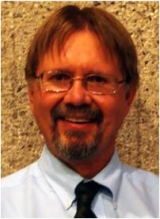 “Steady state economy” – it’s got a nice ring, doesn’t it? In a world of financial meltdowns, climate change, resource wars, banker bailouts, endangered species, BP, etc., the ring gets nicer by the day, no? With unpredictability and insecurity eating away at the collective peace of mind, “steady state economy” exudes stability, security, and sustainability. It’s a phrase for which the time has come!
“Steady state economy” – it’s got a nice ring, doesn’t it? In a world of financial meltdowns, climate change, resource wars, banker bailouts, endangered species, BP, etc., the ring gets nicer by the day, no? With unpredictability and insecurity eating away at the collective peace of mind, “steady state economy” exudes stability, security, and sustainability. It’s a phrase for which the time has come!
Yet we rarely hear the phrase in the media. Some folks have already concluded that there must be something wrong with the words. They think “steady state economy” would be in widespread use already unless there was something politically fatal about the phrase. So they shy away from it like zombies from the sunlight.
I think there’s a different reason we don’t hear the media using “steady state economy.” The media simply isn’t hearing enough about it to begin with. So the bigger question is, why isn’t the media hearing about it?
Perhaps too many people have misread George Lakoff’s 2004 bestseller, Don’t Think of an Elephant! Lakoff is a brilliant linguist (which makes for good authoring), but his book set off a wave of political correctness that wimpified the country by storm. I don’t think it was Lakoff’s intention, but it’s as if the title became Don’t Think, period. Instead, just use words that will sound good to the public (in your opinion), and everyone will be happy.
But if you want to get something done, a better rule of thumb is Don’t Overthink. For example, now and then I encounter a scholar who is familiar with the literature on steady state economics, but won’t use the phrase in his or her own work, especially not in public forums where the media might catch on. Usually the reason given is that the phrase scares people, although the scholar can’t seem to put a finger on why. There are vague notions that “state” might imply communism. Part of the acronym “SSE” gives some an uneasy feeling. It’s as if World War II and the Cold War were bound to re-open if we ventured forth with “steady state economy” on our tongues!
But of course, neither not thinking nor overthinking will get us very far. I say Do Think, and don’t shrink. A great deal of encouragement and education stems from a thoughtful but clear choice of words. Innovative phrases such as “uneconomic growth” and bumper-sticker quips like “Growing the economy is shrinking the ecosystem” are valuable point-makers.
Then when they ask, “If economic growth has become such a threat, what’s the alternative?” the answer should be quick, clear and concise: “The steady state economy.” It’s no use fluffing around with “green economy” or “new economy” or even “sustainable economy,” not if you’re serious about identifying a sustainable alternative to growth. Everyone will have their take on what a “green” economy means, what a “new” economy should be, and what is “sustainable.” Despite your best intentions, you can bet your words will be framed into “green” growth, “new” growth, or the supremely oxymoronic “sustainable growth.”
Not so with the steady state economy. There’s little mistaking the key point: a steady state in the size of the economy. No one’s going to co-opt this phrase!
But you should quickly elaborate, “Neither growth nor recession are sustainable or desirable in the long run. That means the only sustainable alternative is the steady state economy.” To be safe, and to avoid a strawman retort, you should probably add immediately, “Of course, no one thinks there should be a flat-lined, stagnant economy. The steady state economy fluctuates, preferably close to an optimum size.” Tell them, just to be safe, they can call it a “dynamic steady state economy,” or a “steady state economy in dynamic equilibrium with the economy of nature.” Most people, though, will have the common sense to realize that “steady” means mildly fluctuating as opposed to flat-lining.
Similarly, it may help to remind listeners that there is no shortage, in a steady state economy, of qualitative economic developments. Trends in consumer preference, technological replacements, increasing equity… many improvements in economic conditions are likely in a steady state economy. As Herman Daly calls it, “development without growth.”
Now it’s true that “steady state economy” will never be a rhetorical flash like “You do the math” or “Do chickens have lips?” But that’s ok. The beauty of “steady state economy” is that it’s not intended to be rhetorical at all; it’s plainspoken, tell-it-like-it-is terminology. No one will accuse the speaker of political pandering or gobbledygooking their way around a serious issue. Numerous policy implications are immediately clear; fiscal and monetary levers set for growth should be pulled back carefully toward a steady state.
I conclude with a challenge to Daly News readers: Be a Steady Statesman, or woman. Damn the rhetorical torpedoes – if there really are any – and make a steady statement!






